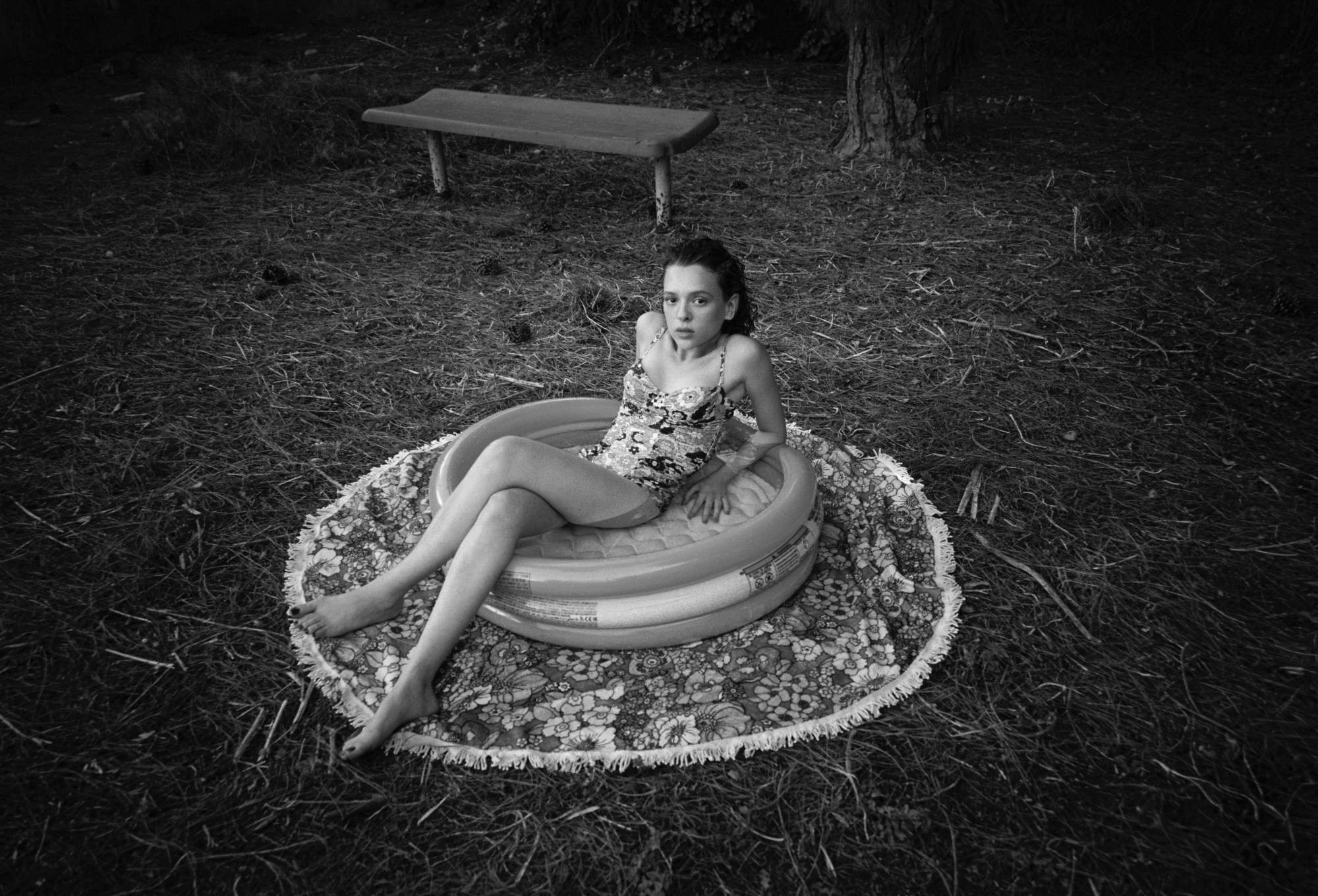The last couple of months were supposed to look a little different for Shira Haas. Following the breakout success of Unorthodox, its 25-year-old lead was due to fly around the globe to attend film festivals, award ceremonies and premieres, riding a wave of overwhelmingly positive reviews — until the godforsaken coronavirus came along, that is. She suddenly found herself stuck at home in Tel Aviv, unable to see family, friends and colleagues. But, while for many of us in lockdown it felt like the walls were closing in, urging us to find ways to dispose of our partners and roommates, for Shira it meant that she finally had time to sit down and process what had happened since the show premiered on Netflix.
For those that have yet to see it: Unorthodox tells the story of Haas’ character Esty Shapiro, who grows up in Brooklyn’s ultra-Orthodox Satmar community, one of the largest Hasidic Jewish movements in the world. Due to its strict traditions and the constant involvement of family members, Esty starts to feel suffocated in the insular community. After she marries Yanky, a young Hasidic man, marking the start of a domestic, family-oriented life, she decides to escape to start anew in Berlin. There, Esty, who is in fact curious, ambitious and a gifted singer, is able to shed some of the smothering expectations that come with being a young Hasidic wife. This happens quite literally, in fact: the scene in which she wades into Berlin’s Lake Wannsee, takes off her sheitel (the traditional wig most Hasidic women wear after getting married), and submerges herself in the water can only be described a cathartic rite of passage, and of the most powerfully liberating moments in recent television.
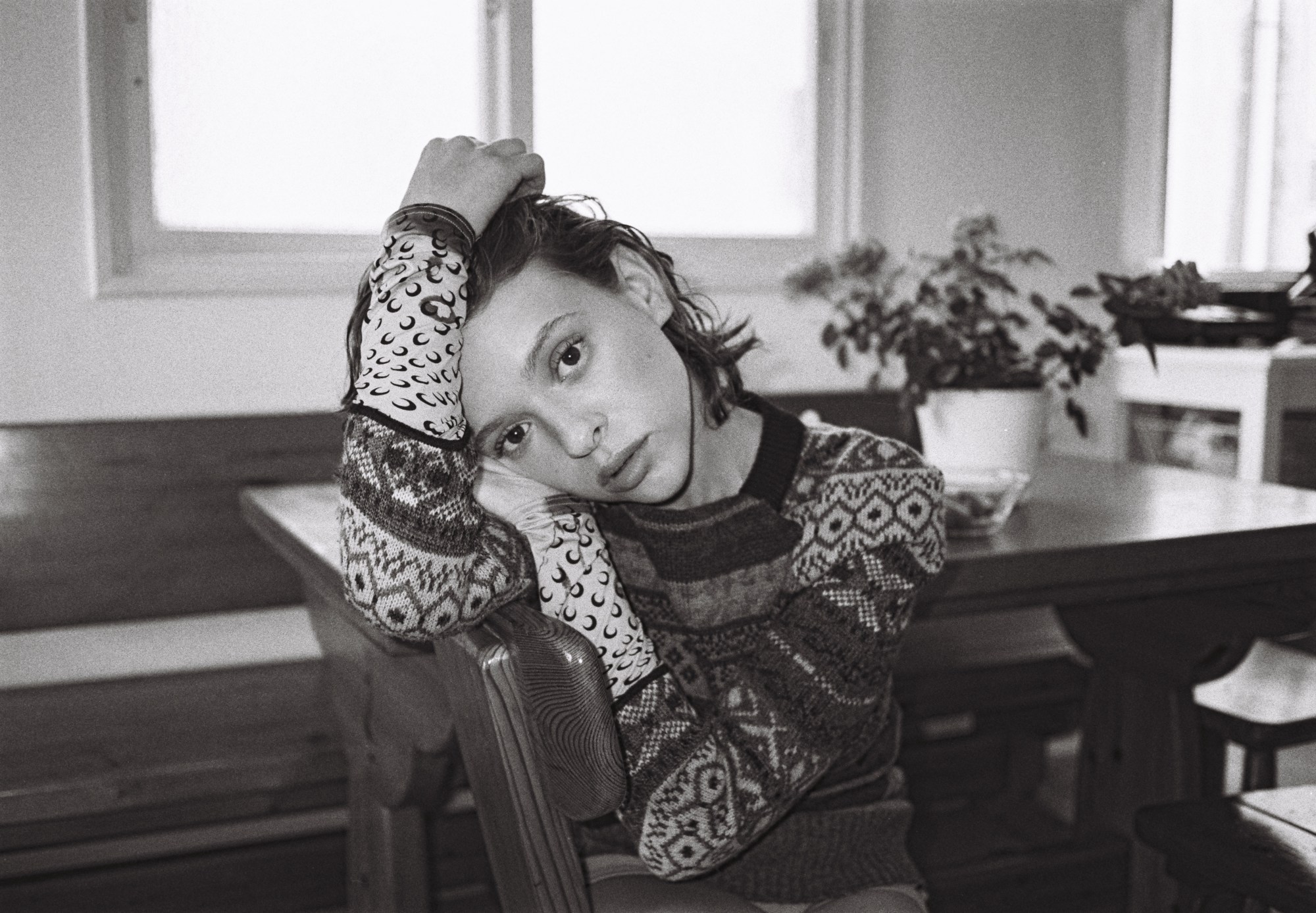
While Shira grew up in a secular and supportive family in a city close to Tel Aviv, she can relate to the transformative moment that her character undergoes. “At eight years old I was already very inquisitive,” she says over the phone. “I was like a forty-year-old trapped in the body of a child, always asking these serious questions.” And that never changed, she explains. She kept on pushing to find her inner voice, just as Esty does — in Unorthodox, she ultimately auditions as a singer at a Berlin conservatoire. “When I started acting, it really opened these doors for me, and I was able to pursue my artistic dreams,” Shira says.
It is tempting to see Esty as Shira’s breakout role, but that would diminish the career that she had before the series. Take her part in The Zookeeper’s Wife (2017), for example, where she stars alongside Jessica Chastain, or the role of young Fania in Natalie Portman’s directorial-debut, A Tale of Love and Darkness (2015). “I see how people might perceive the Esty character as consolidating my career but I’ve been working towards it for eight years. Each time I take on a new film I am like ‘This is the part and I need to give it my everything.’ But yes, if you’d [told] me four years ago that I as an Israeli actress would be starring in a big international Netflix production I probably wouldn’t believe it. Maybe in a couple of years I will look back at Esty and think: it really laid the foundation to my career.”
In that light, Unorthodox could be seen as much as a coming-of-age story as it is a glimpse into a community hardly represented in popular culture. And that’s where the strength of the series lies, in its portrayal of Etsy’s decision to leave her community as one that’s completely understandable and relatable. After all, everybody has the right to go and find their own community, and not be predestined by the one into which they are born.
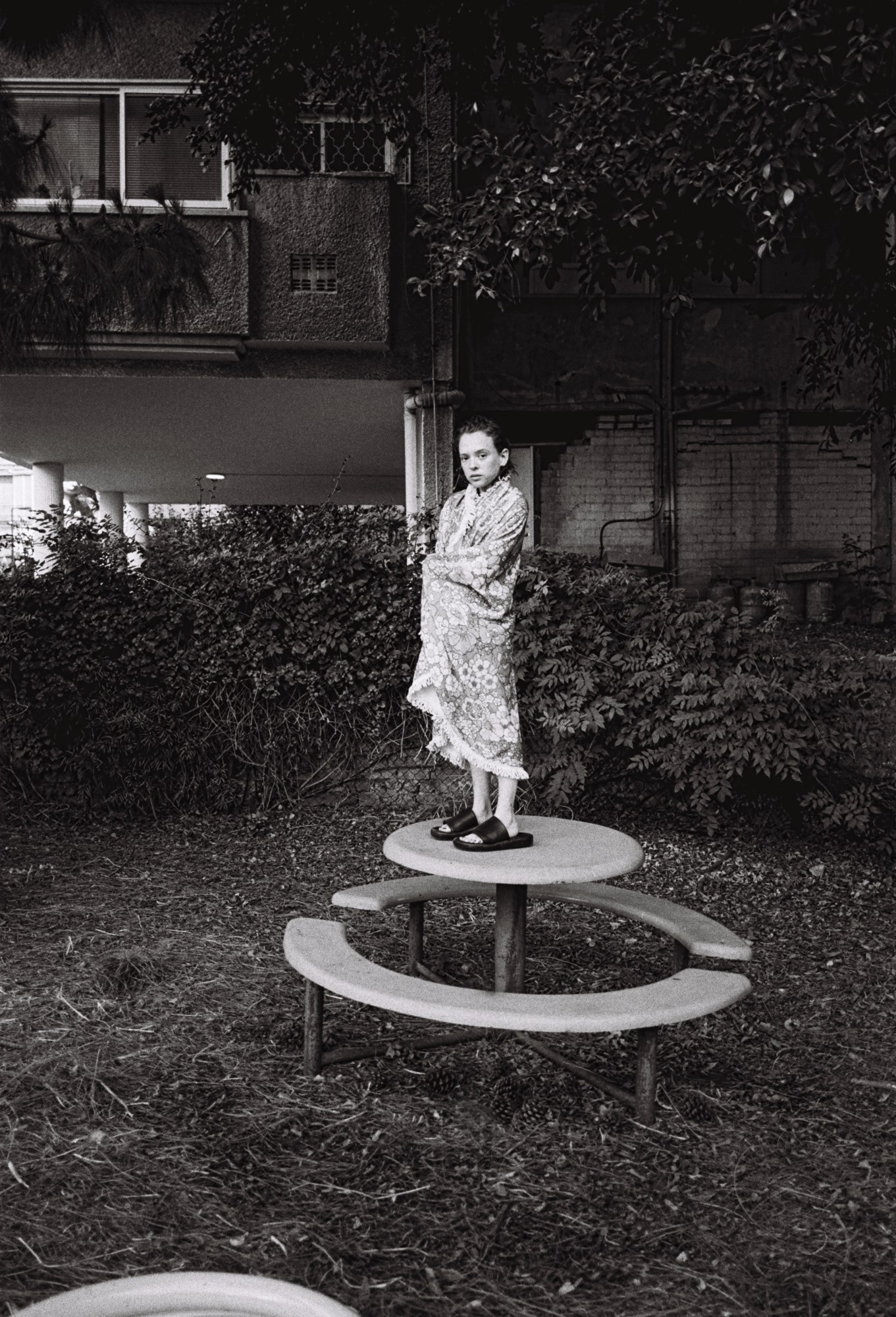
“Family to me is very important,” Shira says. “I see mine every Friday at Shabbat dinners, and my grandmother is my number one person who I’ve missed terribly during this lockdown. But my acting family is also very special to me. When you’re part of a set for a couple of intense months, you really start to form a community with your fellow actors, and develop these rituals that tie you together.” Being able to move between all these different facets that make up your identity, that provide you with a sense of belonging, is ultimately what real freedom is — something ultra-Orthodox young women like Esty unfortunately don’t always get to do. Indeed, those who do decide to turn away from the community often end up being completely ostracised.
“I think a lot of people worldwide resonated with her character,” Shira says. “The reactions I got from all corners in the world — whether from secular people, or Jewish, from the elderly or the young, from Argentina or Germany — they were all basically unequivocal: I could be Esty. But the fact that it touched so many people, and that it was such a universal story, really took me by surprise.”
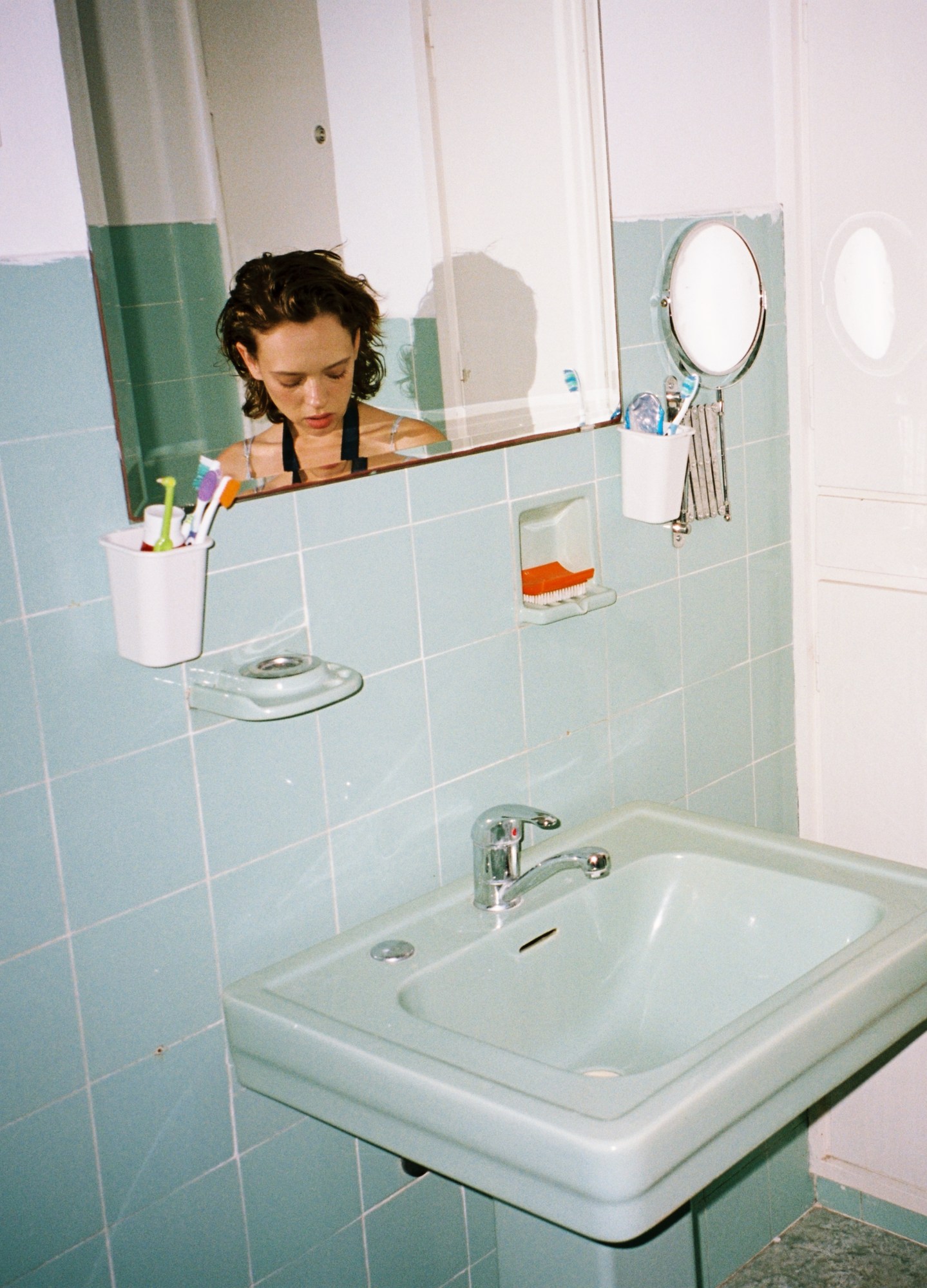
There have been some criticisms as well, particularly coming from members from the Hasidic community itself, deeming that the series portrays its members too harshly, as bitter and devoid of any empathy. This, however, seems to come with the territory of it being a dramatised series, Shira explains. Unorthodox never aims to be a documentary; it wants to tell the universal story of a girl finding her own feet through the prism of a particular community. “A series that will make an impact will most likely evoke emotion, and I welcome everybody’s thoughts on it. But generally speaking the feedback has been really amazing,” she adds.
“I understand that to many outsiders the Hasidic community might be this alien notion but I’ve always approached it with an open mind and curiosity. Not many people might know this but even within the ultra-Orthodox Jewish faith you have many different varieties.” In Shtisel, for example, another series currently on Netflix, she portrays an Israeli girl from a Haredi family, another faction in Judaism known for its strict adherence to traditions, as opposed to modern values and practices. “To really understand all the rituals that are part of these communities, you must really do your research,” Shira explains. “That’s one of the reasons that we had a consultant on the Unorthodox set who was incredibly particular about details — even the height of men’s socks didn’t go unnoticed, it had to be correct! Striving for accuracy was really important.” While she doesn’t bring it up herself, or boast about it, we can’t leave out the fact that Shira learned to speak Yiddish for the part, with no prior knowledge of the language at all.
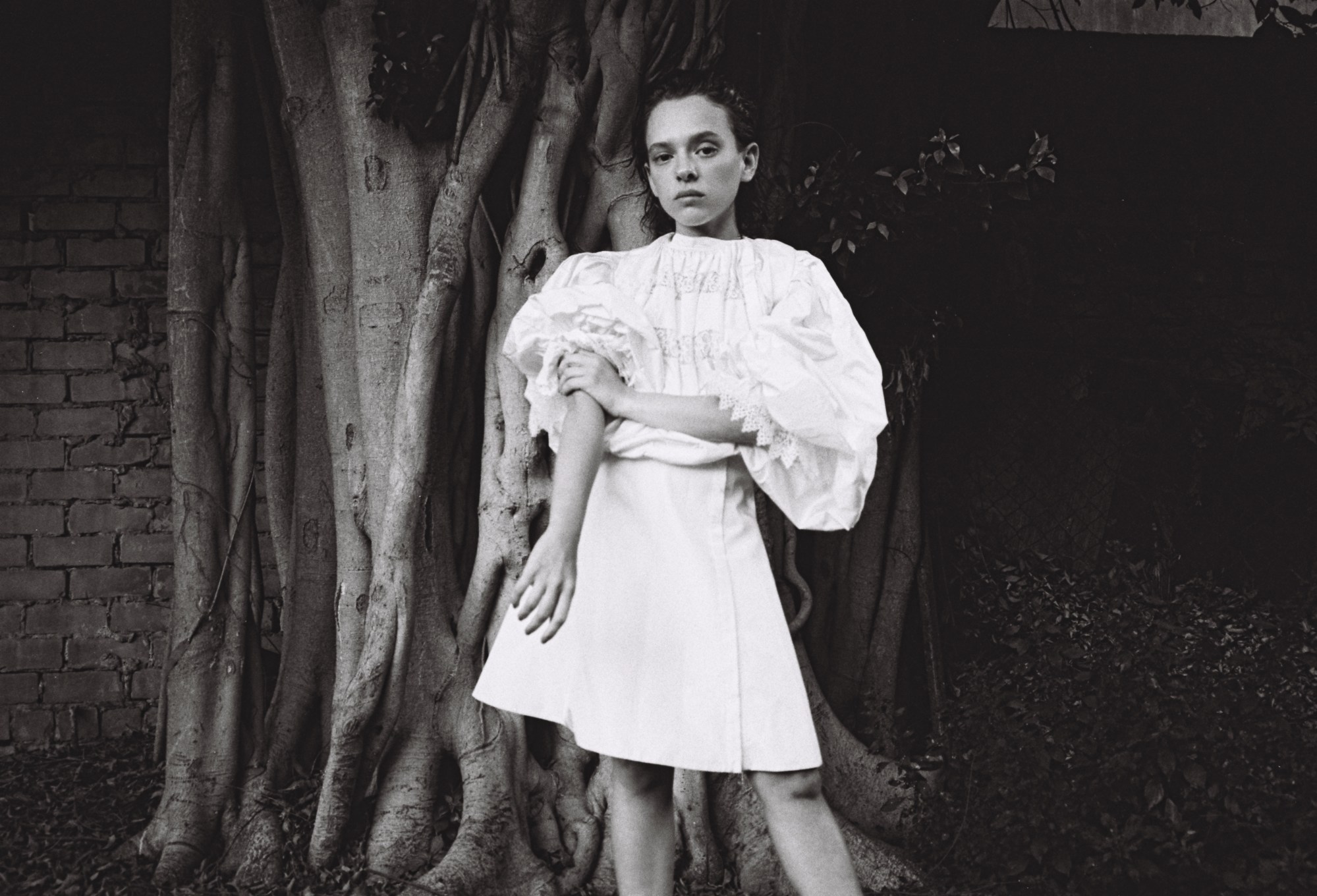
It is somewhat tempting to deem Esty Shira’s breakout role, but that would undermine the career that she’s already had before the series. Take her part in The Zookeeper’s Wife (2017) for example, where she stars alongside Jessica Chastain, or the role of young Fania in Natalie Portman’s directorial-debut, A Tale of Love and Darkness (2015). “I see how people might perceive the Esty character as consolidating my career but I’ve been working towards it for nine years. Each time I take on a new film I am like ‘This is the part and I need to give it my everything.’ But yes, if you’d asked me four years ago that I as an Israeli actress would be starring in a big international Netflix production I probably wouldn’t believe it. Maybe in a couple of years I will look back at Esty and think: it really laid the foundation to my career.”
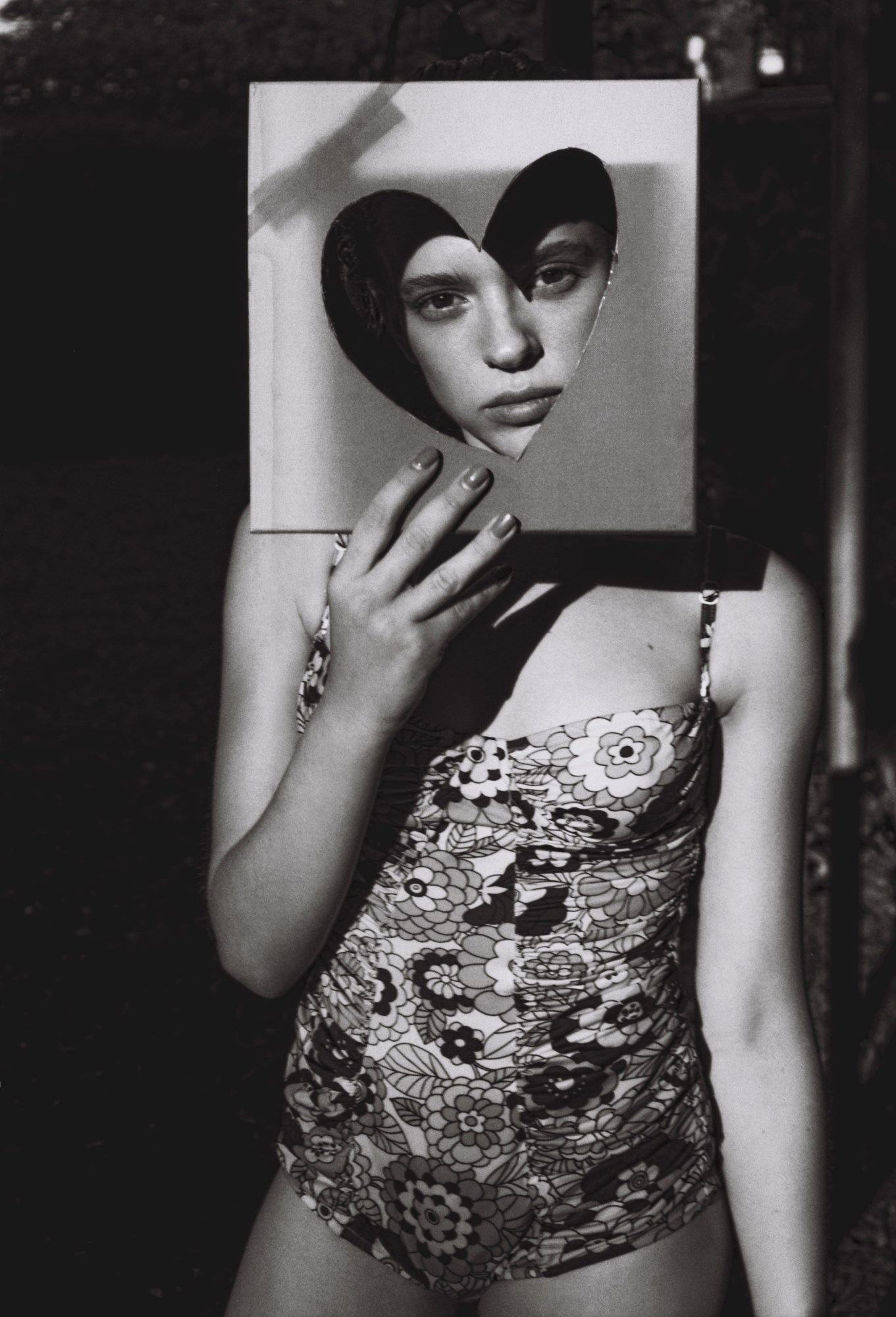
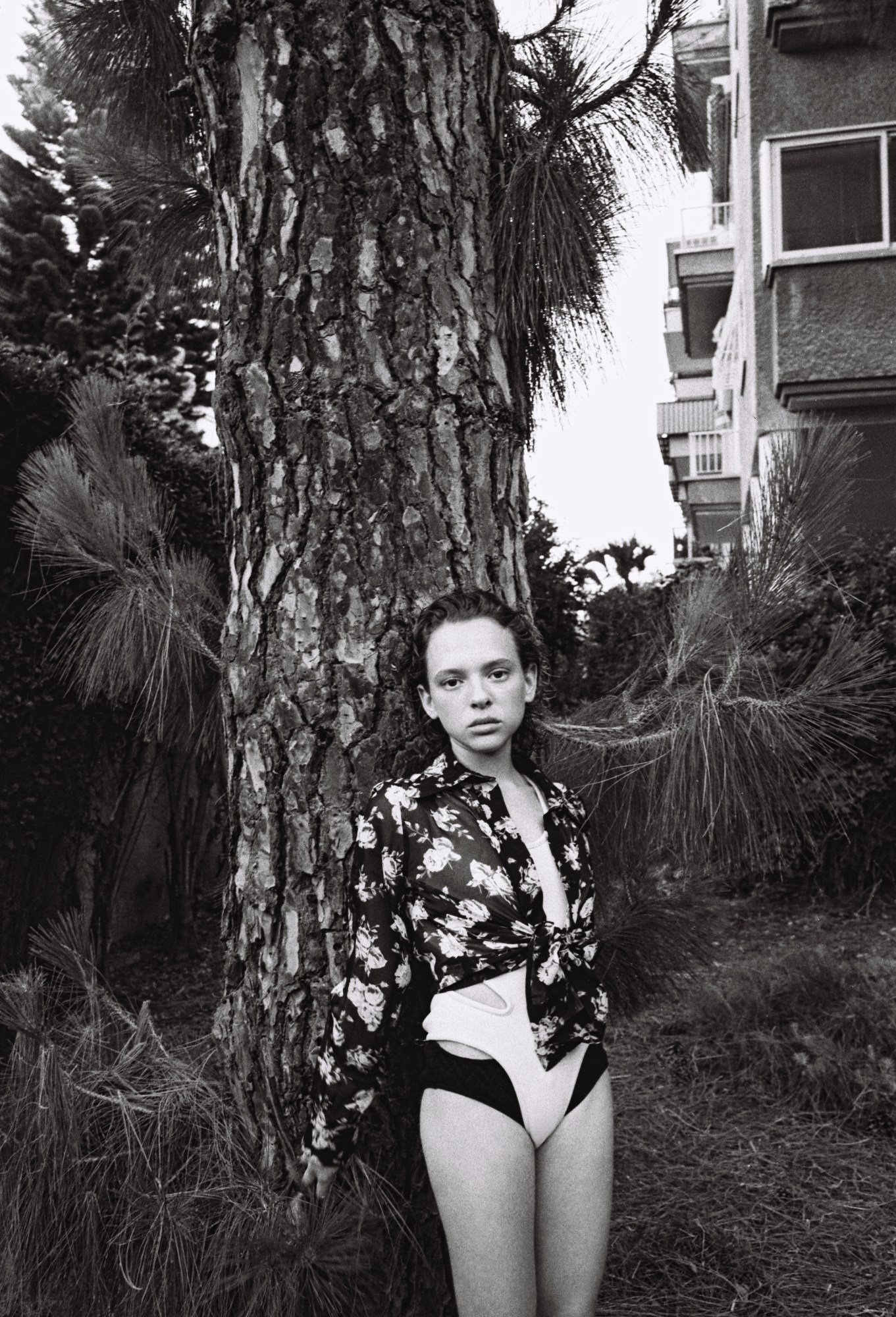
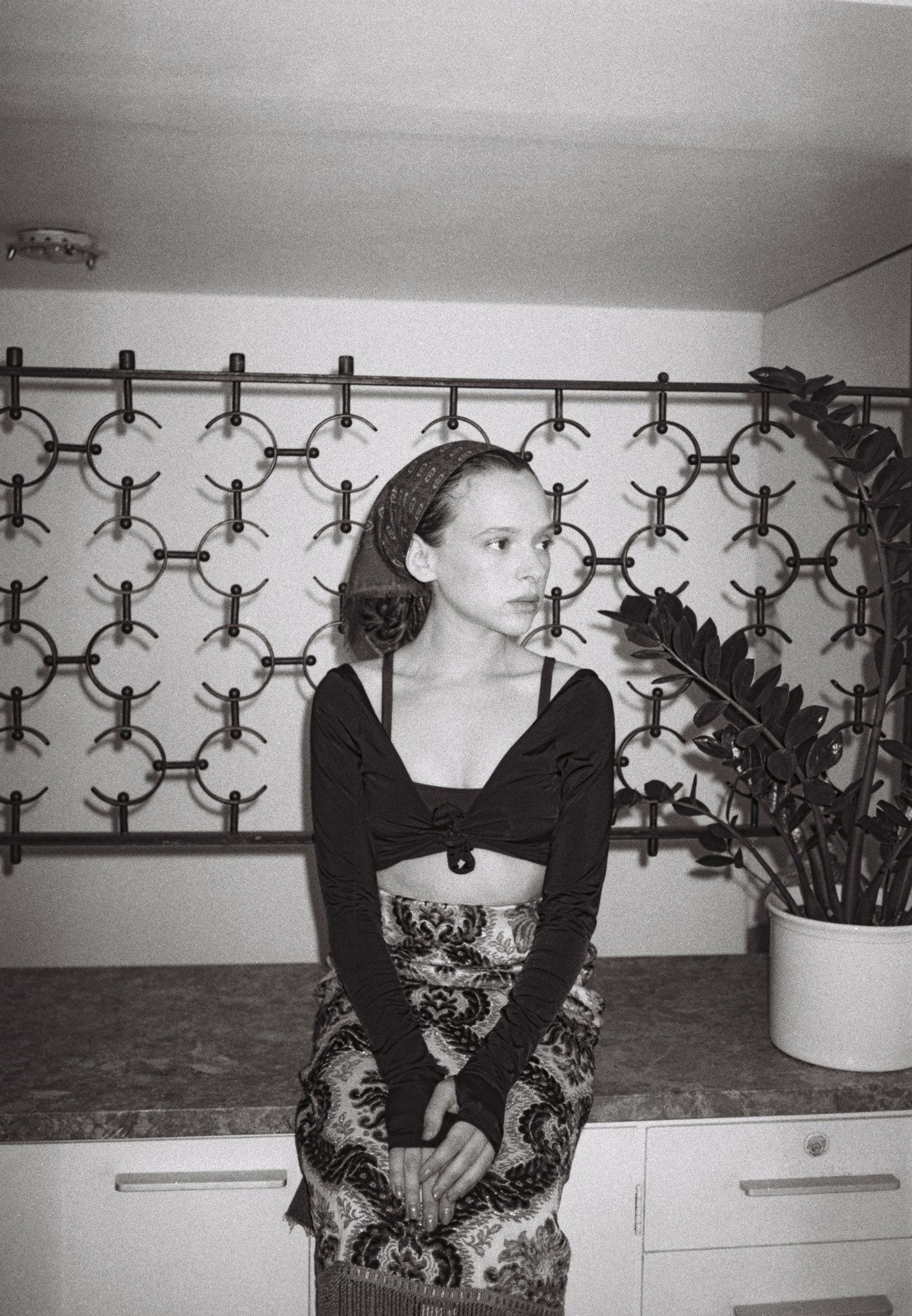
Credits
Photography Yaniv Edry @ Today.Mgmt
Stylist Michelle Cameron
Hair Yaniv Zada
Makeup Michal Ronen
Styling assistance Shiri Shanhav and Lucie Tallandier
Film Yaniv Edry @ Today.Mgmt
Stylist Michelle Cameron
Hair Yaniv Zada
Makeup Michal Ronen
Editing Shir Rosenthal
Soundtrack Tristan Bechet
Music “Anxiety” by Adi Ulmansky
